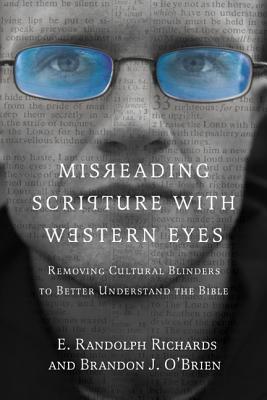
WIN A FREE BOOK!
To broaden the conversation about honor & shame, we are giving away
Misreading Scripture with Western Eyes. Although the book is about hermeneutics, cross-cultural workers are finding it highly relevant for ministry as well. (If you have it, we’ll get you
Cross-Cultural Conflict by Elmer) How do you enter to win? For each of the following, you get one ‘ticket’ in the book drawing:
- RECOMMEND this to others (via email, reblog, message, post on Facebook, etc.). If the winning person learned of HonorShame.com through you, you also win the book! Multiply your chances of winning. If this seems like a Bernie Madoff, pyramid-marketing scheme to you…rest assured, it’s for a great book!
Who else do you know who works in honor-shame contexts? If they win, you win too!!
________________________________________________
SCREWS & NAILS: The Need for a Christian Missiology for HonorShame Contexts Imaginary Joe learned how to build homes out of nails, so he was skilled at using a hammer. But then Joe traveled eastward, where people built things out of screws. Because Joe always built with nails, he pounded the screws with his hammer, just as he always did. He labored in vain, feeling frustrated. Joe needed a different tool to build effectively.

I like to ask people two questions:
- In your ministry to the nations, have you encountered honor and shame dynamics?
- Have you ever heard a sermon about honor and shame in the Bible?
People typically answer the first question with an exhausted ‘yes!’ and the second with a befuddled ‘no?’ There is a gap, a huge gap, between global realities and Western theology.
Even though honor and shame are dominant values among nearly all unreached peoples and most of the world’s population, our current theology has little to say on honor and shame. Why? English and German-speaking theologians have looked under every nook and cranny to answer Western existential needs –
how can my guilt be forgiven and conscience placated? But they failed to ask a question central to Majority World cultures –
how can be shame be removed and honor restored? Western theology is not wrong, it is just incomplete.
To understand the full beauty of a diamond, we must examine all of its brilliant sides. The gospel involves forgiveness of sins, and also removal of shame (and many other things!). Because of this gap between Western theology and global realities, most Christian workers feel a pesky, unrelievable itch created by cultural tensions in their ministry. Fortunately, there is a solution. The Bible was written in an honor-shame culture, so it saturated with promises, stories, and theology for Christians in honor-shame contexts. Next week, I’ll highlight the
vision of HonorShame.com – to provide a contextual new tool for His workers to build with in HonorShame cultures.
Until then, let your co-laborers know about the free book!

 I like to ask people two questions:
I like to ask people two questions:

Yes to #1! In the context of co-workers, actually. The observation is that some are unaware of their own culturally bound expectations, such as expecting non-Westerners (shame/honor culture folks) to act like Westerners…and if they don’t, an impression can form that they are bad, lazy, immoral, etc. (lots of labels can ensue). Thanks for your in-depth blogs on Honor/Shame! It is such a matter that can cause pivotal change when understood correctly and applied with humility.
JoAnne,
Great pionts. Hence the reason they call is a ‘blind spot’! We often just don’t see it, then start making moral judgments without understanding the underlying values, as you say. I believe it takes most people 3+ years to really start catching the nuances of honor & shame at play in a culture. Even now, I still miss it sometimes in my relationships with refugees!
I come from an honor-shame context and went through seminary preparation (in my country) for pastoral ministry within my context but fully equipped from a Western guilt/innocence perspective. Only to find myself in the ministry four years later, teaching/preaching the gospel but making sense to a few people if any. That is why my heart goes out to the theological education in HS cultures. I hope to contribute in discovering and removing the cultural blind spot in theological education that has been missed in my context of ministry for many years. That way we will not have to re-teach pastors in HS majority world what is inherently in both the Biblical cultures and evidently in our own cultures, and hence should resonate with our audience with much ease.
Wow, praise God for your heart! You’ll have to keep us updated of your studies. I believe, God has uniquely positioned you to bring about these sort of vital changes in TE in HonorShame places. Keep it up!